Chris Baty's Blog, page 258
August 10, 2011
Sharing Is Daring!
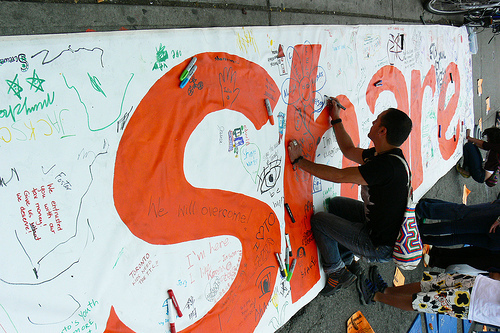
You labor over word choice, descriptions, character development, and plot for hours and hours, and find that you're still unsure of the phrasing in a particular paragraph or if your plot twist works. This is the point in the process when it's helpful to pull your pages out of the dark and ask for feedback, and I'm not just talking about correct grammar usage. Sharing your work with other writers, people who enjoy reading, or simply friends and acquaintances who are willing to listen, can be a crucial step in the writing process. To borrow Tupelo's awesome description, these people help us see the spinach in the teeth of our writing.
I would be lost without readers and friends who are willing to hash out my work with me. Over the summer, I have been part of a writers group that meets every other week for two hours. We swap book titles that have been inspiring or helpful and share three poems each for feedback. Simply having a set meeting helped me get through my month of poetry. When I see our meeting dates on the calendar, it provides a reminder that I need to stop browsing Facebook or checking off my to-do list, and sit down to write or revise.
I'm also a member of another kind of writing group each semester. One of the reason I wanted to go back to school was to be part of an established, regulated group of writers who would help inform my work. But oh man, do I get nervous when it's my turn to share! In fact, I often have to coach myself before class to get through reading my poems aloud without a noticeably shaky voice. This group is less intimate and often quite opinionated, and I'm still offering up the poems I've spent a great deal of time on for reconstructive surgery.
Both groups are important for different reasons. In my chosen group, I feel a lot of support. There are just three of us, which allows the time and space to ask probing questions that help us see areas for improvement in our writing. It's also a time to provide encouragement on aspects that are working well. Most of all, there seems to be an understood patience with each other's work as we attempt to grow. We don't always agree, but those differences in opinion often lead to better discussions, and time together helps us develop deeper understandings of one another's style, voice, and subject.
My assigned writers group, on the other hand, is larger, representing around 12 writers. It meets once a week and the time to share and receive feedback is often short, which makes me question the feedback I receive and offer. There is more distance in this group and at times I get caught up thinking it's a space for correct answers and approval. Sometimes, it becomes obvious that I'm not making sense with my writing or that I've relied on cliché or sugar-coated sentiment. Even though it can be challenging to hear and process, I've realized this distance is essential. It helps me see a poem, story, or article through a lens that is closer to a reader picking it up somewhere far away, without any connection to me or my writing style.
Sometimes feedback can feel discouraging and overwhelming because not everyone approaches the content or format with the same opinion and sometimes we can hear clashing voices. At other moments, sharing work with others can provide confirmation for the main character's development and a metaphor we were uncertain about.
Since it seems like a necessary challenge to share our work with others, I'm always trying to collect strategies that lead to fruitful dialogue about writing. It's one thing to maneuver through this with my peers, but it's quite another challenge to lead a group of students in this kind of discussion. Here at OLL, our YWP curriculum utilizes great strategies to create a supportive environment to help students edit when the time is right and this often requires sharing stories with classmates. In a workshop I was in last spring, the professor had a three-round system in place. In the first round, we praised the writer's work. In the second round, we posed questions about the work to other classmates and the writer. And in the third round, the writer responded with some questions of their own. This format made the writer really think through their work and answer questions that surrounded it.
Are you in a writers group, either assigned or chosen, or are you against offering your work to be hacked away at by others? How does it benefit or bend your writing? Are there any strategies you use to create a positive conversation for writing in group settings?
– Jenelle
Photo by Flickr user Medmoiselle T
August 9, 2011
Wrimo Celebrity Visits Office, Staff Rejoice

We love office visits from participants. (In fact, as I was writing those very words, a Wrimo walked through the door with a plate of brownie cupcakes!)
Some visits are planned, some not. And some carry with them a very special significance for us.
Last week, we had one one such visit from author Julia Crouch. She and her family were in town all the way from Brighton, and they stopped by to say hello. Julia brought us a copy of her book, Cuckoo, out in bookstores now from Headline UK… and drafted during NaNoWriMo!
Meeting a NaNo-novelist and her creation in person is a unique magic. (Especially when the novelist herself is as magical as Julia. Just delightful!) We often get to meet the books, which get mailed in (oh how we love that!) or we pick up at the bookstore. But getting the two together—novel and novelist— just short-circuits the brain with awesomeness.
On top of the simple greatness of seeing a beautiful finished product from November's messy, wordy madness, the staff unanimously decided that we want to be adopted into the Crouch family. We almost abandoned ship and followed them off into the sunset. They are that fun, and funny, and cool and interesting. We are big fans.
Wrimos, when have you felt such star-struck elation?
– Lindsey
August 8, 2011
The Young Writers Program July Writing Contest: Results!

A couple of weeks ago, we announced the first annual Young Writers Program July Writing Contest. It was just a little idea—a way for our students to get in some writing during the summer. Almost 150 entries later, we're proud to say that the contest was much bigger and better than we'd ever hoped.
Our only prompt was "Compose a brief story (300-word limit) that starts on a bright, sunny day." The directions these kids and teens went with that simple concept were inspiring. We had sci-fi, horror, war, comedy, romance, and more—all unique takes and ideas. We were so impressed with everybody who submitted, and choosing a winner was a very hard task. Eventually we narrowed it down to three stand-outs…
Grand Prize Winner:
Samantha Tatum (WordsToSay), Middle School
It was a bright, sunny day.
That was the problem.
My brother spent the morning curled up on the front porch, his thin, young legs poking out from his position as a replicated armadillo and his soft breath panted quietly, whispering warnings of what he saw to the wind.
I sat behind him, worrying his hair. He did not sleep under my touch, his tiny body trembling.
I watched as his friends rushed around on the streets, every once in a while staring up at the sky—but only fleeting glances. They did not absorb panic as quickly as my brother always did.
Mum was quarantined at work, though I wasn't sure why. The government was rushing to explain and in their haste, put down strange regulations anywhere they would stick, trying to convince everyone that the situation was under control.
It wasn't.
My skin prickled and I slathered more sunscreen over my skin, my fingers shaking lightly as I rubbed it in. I had to stay calm. Soon, I had to feed my brother dinner. We could go inside and escape from this madness for a few hours. It wasn't like I was going to catch on fire or anything…
What if?
Suddenly confused tears rushed down my cheeks and my eyes stung as I struggled to see through the moisture to my brother.
I scooped his body up into my arms as he kicked and yelled, asking me what I was doing. I opened up the front door to my house and pulled both of us into the safe darkness.
I wondered why there were no government-issued guides to surviving this.
But then again, who anticipates waking up to two suns in the sky?
Honorable Mention Winners:
Ceana Leonard, Elementary School
Photo by Flickr user Thomas Hawk
August 5, 2011
Animal Friends in Fiction
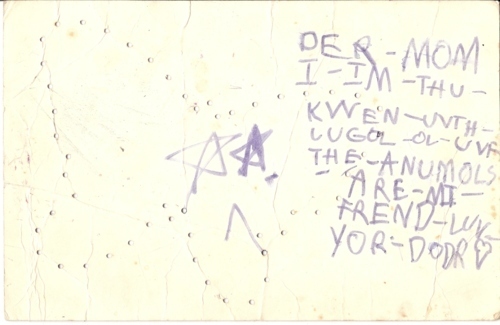
The epic saga captured in this picture might be the first story I ever wrote, an epistolary tome dedicated to my mother. For those not familiar with four-year-old phoneticisms, let me translate:
Dear Mom,
I am the queen of the jungle—all of the animals are my friends.
Love,
Your Daughter (heart/ice-cream cone)
Mom knew, and I've shared it here many times: animals are my friends. They reign in my home, heart, and even as a reader. (Raise a hand if you remember Milo & Otis! Three cheers for The Rats of N.I.M.H.!) The animal's perspective isn't just for kids, either. Carl Hiaasen treads lightly on the dog-as-narrator via McGuinn, the black Labrador, in Sick Puppy; more recently, there's Stein's The Art of Racing in the Rain, and my favorite of the genre is Hawkes' crushing Sweet William.
Animals, dogs specifically, are making a home in my writing as well. I'm right now cooking on a short-story collection that includes a story told from the point of view of MacGuffin, a terrier, and I have a novel simmering on a back-burner whose main character, Ben, is a female pit bull. It is likely folly, and it is certainly human conceit, but these creatures have been my friends for so long, I feel like I must include their voices in the stories I tell and from the first-person perspective because that is what they are to me first, and very much so—people.
How about you? What are your favorite animal-centered books from childhood to now? Are animals making their way into your stories? Do you have any animal protagonists, villains, or first-person narrators? If the only animal in your story is the one you type around and over as he or she curls on your lap, that counts, too! I look forward to hearing about your furlets and their adventures on and around the page!
– Tupelo
August 4, 2011
The Art of Letter Writing: A Vote for the Long-Hand Approach
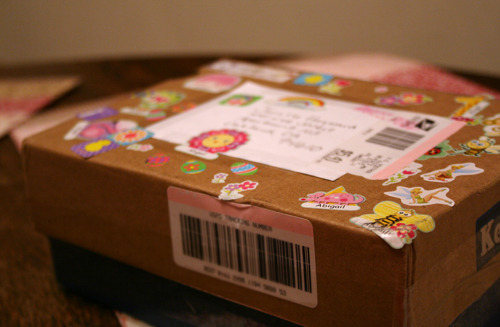
Chris' recent post invited me to reminisce on the greatness of snail-mail letter writing, despite the fact that he is utilizing the more modern electronic approach in his project. I have to start by saying a big "Go Chris!" Writing a long, thoughtful email every day requires great effort! Both forms are awesome and are often used for different purposes, but I'm such a big fan of sending and receiving via the US Postal Service that I've got to claim my allegiance!
When I was in college, I lived abroad in Orvieto, Italy. It was the first time in my adult life that I was without internet access (unless I decided to empty my bank account at the few internet cafés in town). It was also the first time I had been without a landline or cell phone. I occasionally used the pay phone in the main piazza, but I had to keep my conversations brief due to calling card charges and lines that formed behind me. This is when I began my quest for an inexpensive and unlimited form of communication that sends as close to a real hug as possible. Lengthy letters on stationery, with stamps and envelopes, were the way I kept updated on details at home and how I sent snippets of my experience stateside.
Holding letters in my hand became an important experience during this time. I kept my growing stack of letters in my desk drawer and when I felt truly homesick, I could pull them out and re-read my mother's cursive handwriting and my grandmother's X's and O's repeating in a line after the salutation. I still keep them in a box with other memorabilia, and once in a while I will read them over again, remembering the first time I broke the seal. When I do, I hear the sound of Italian being spoken around me, the scent of lavender outside my window, and the city bells keeping track of time.
I have continued to write letters over the years since I returned from Orvieto, especially now, since home is far away again. This time I have a very special pen pal who tells me about the bugs she is collecting in her backyard, the igloo she made with her dad when the Northeast was hit with mounds and mounds of snow, and she includes detailed explanations of the beautiful pictures she creates to send my way. My wonderful, precious four-year-old niece is my favorite letter writing buddy. Of course, she can't write on her own yet, but luckily she has a patient mom to record her words. When I receive her letters it absolutely makes my day, my week, my month! Our exchange provides a fun way to explain the lack of snow outside my window in January, the palm trees I see instead of pine, and the three-hour time difference. We both enjoy writing letters and get quite excited when special notes travel to and land in our mailboxes!
Are you passionate about writing letters—the kind that take time to write, send, and receive? What makes them worth the effort and wait for you?
– Jenelle
August 3, 2011
Writer Fuel: Spinach and Tofu Shake

Now, now. Don't make that face! Hear me out.
Best (healthiest, most protein-packed!) shake ever:
yogurt (fruit or plain, full-fat or nonfat—your choice!)
frozen berries (strawberries, blueberries, and raspberries are all great)
and/or fresh fruit (peaches are in season and they are yum!)
1 banana
a handful of spinach (I add two!)
1 serving of tofu (roughly 1/5 of a container)
a splash of milk or orange juice (or even water! The more liquid you add, the less thick it will be.)
Our fabulous Community Liaison Sarah Mackey shared this recipe with me. (Thanks, Sarah!) I fully recognize that it sounds repulsive, but you can't judge a shake by its ingredients. This is so delicious that it's more like a sinful treat than anything I'd ever brand as health food. And it more than fills me up until lunchtime, giving me the protein I need to karate chop site bugs and write pep for our participants!
What is your favorite delicious recipe with unexpected ingredients?
– Lindsey
August 2, 2011
Listen.
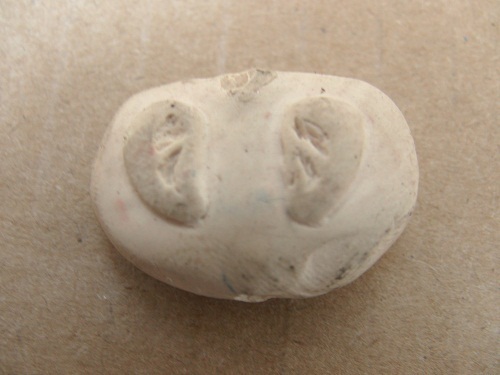
You know how you have those few friends who will tell you when you have spinach in your teeth? Or that your tag is sticking out? Or that those jeans… um, maybe not today? Our Lindsey Grant is one of those people. I can count on Lindsey to tell me, for example, when I have chocolate on my face. (Which is quite regularly—see, there are these vegan chocolate chip cookies at Sweet Adeline and they are so very good though the chocolate is just a bit messy and I'm focusing so hard on my work that I sometimes miss my mouth…) I could walk around the office all day, even venture out into the world, with chocolate on my face, and might not know it because not everyone notices, or is as ready to step into the embarrassment (which is like stepping into a great wind), and tell me. But not Lindsey! In this way, Lindsey is like… my ears.
Let me explain. When it comes to writing, our ears are our best friends. They will never fail to tell us if we have-a-little-something-right-there, or if those jeans we've dressed our writing in are indeed inappropriate. We can trust them. They won't let our stories out of the house looking like that. Our eyes, on the other hand, well, they are just so busy! And they love us so much! They understand what we mean, they know that we don't want to have that spinach in our teeth, and they have a to-do list a mile long, so, they overlook mistakes and slips. Our eyes listen to our intention. Our ears listen to what is actually on the page.
Jenelle recently wrote a great post about the importance of sound and rhythm to poetry. I'm not throwing down the blog gauntlet or anything but sound and rhythm are inherent to fiction and nonfiction as well, or should be (okay, so I'm throwing down a tiny gauntlet). I read all of my work aloud, including this, and including my novels past and future. I read until my voice is hoarse and my ears are happy. The more nuanced the phrasing, the greater the need for a particular beat, the harder I listen. This is the only way I can be sure that I've got it. Our busy eyes don't give two shakes about rhythm (or even missing words or misspellings), but our ears are… Lindsey Grant. The ones we can trust to let us know if we're ready to face the world.
Do you read your work aloud? What other ways do you check your work before you share it with others to see if it has any spinach in its teeth? Who is your Lindsey Grant?
– Tupelo
August 1, 2011
A Letter Writing Project
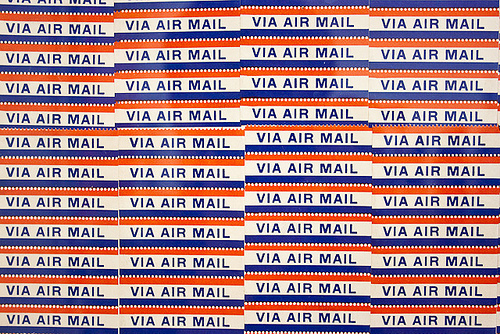
We're always working on—and talking about—creative writing here on the OLL blog. Lately, though, I've been working on another kind of project: composing letters.
No, not long-hand. Who am I, Emily Dickinson? I'm writing in a mode that actually seems quaint in the age of text-messaging and wall posts: just nice, substantial, old-fashioned e-mails. I've lived in a few different places in my adult life, and made a lot of great friends along the way. Unfortunately, as I'm sure you know, it can be tough to stay in touch. (I'd argue that Facebook exacerbates this issue, as it gives the illusion of proximity. How far away can your friends be when you can get to them in just a few clicks, right?) So, I devised a system:
Each day, I'm writing one letter to one friend, in alphabetical order. (I'm up to the end of the Cs so far.) Most people are pleasantly surprised by the out-of-the-blue effort. This stuff doesn't happen enough these days. We're all busy, and do most of our socializing through portals that encourage only cursory contact. It's so nice to open up my inbox and find something more significant—an exchange that actually makes me feel connected.
What methods do you use to stay in touch with your friends and relatives? Anyone want to join me in my project? Am I totally wrong that Facebook and other social media facilitate more-superficial connections? And what should I do about my jerky friends who don't write back? Cut them off entirely, right?
(Just kidding about the last thing.)
– Chris A.
Photo by Flickr user cheukiecfu
July 30, 2011
I (k)need your advice!

I dislocated my kneecap last week.
I wish I had a dramatic story to explain what happened, and it's tempting to make one up. But the truth of the matter is, I fell down. I was dodging a crowd of people, my ankle turned, and my kneecap popped out of its joint when I fell. Just good old-fashioned bad luck.
So now I'm stuck in this stupid giant leg brace, and I'm sore all over from using crutches, and I'm bored and depressed and annoyed at myself. My husband is a teacher, so he's home for the summer and being an absolute saint. But I'm not used to being an invalid, and I'm not very good at it. It's not like I'm usually out running marathons or anything, but you get used to being able to, say, go to the bathroom without it being a whole production.
I've been watching lots of TV on DVD (a friend is over right now dropping off all of Friday Night Lights and The Wire, in fact) and have been getting some knitting done, and at least I work at home so I don't have to go anywhere, but this kind of sucks.
The only thing saving me from completely losing my mind is social media. Twitter has been particularly life-saving, from telling me bad jokes while I was in the ER waiting room, to helping me figure out why my crutches were making my armpits feel like they were going to fall off. My pharmacist friend was giving me pain medication advice via Twitter; my physiotherapist friend has been sending me tips and suggestions for using my crutches and going up and down stairs. And since I've been home for a week without seeing anyone except my husband and my doctor, it's helping me feel at least marginally connected to the real world.
Still, even with my virtual buddies amusing me and offering advice and sympathy, it's kind of a drag. I had big plans for my summer—the first summer in years that I didn't have to work evenings and weekends. I can still do some of them, but it's definitely curtailed things. And I miss things I took for granted, like sleeping on my side or putting on my own shoes.
Tell me your stories of totally lame (no pun intended) ways you've injured yourself, share your tips for life on crutches, and suggest ways I can amuse myself with a bum leg, please!
– Sarah
July 29, 2011
An Interview with Kaat Vrancken
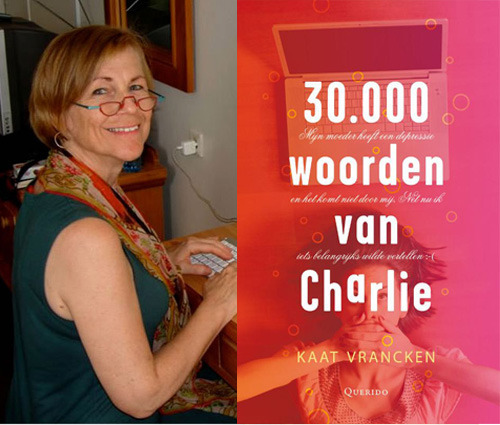
Kaat Vrancken has been publishing books—both fiction and nonfiction—for the better part of two decades, but 30,000 Words by Charlie is her first book (and the first published one that we know of) to put its titular character through a NaNo-like challenge!
We sat down with Ms. Vrancken (virtually) for a few words about the new book, and her work as an author.
Can you talk a little about your experience with NaNoWriMo?
Since 2007, I've been teaching creative writing for adults at an art school in Belgium. One of my students told me about NaNoWriMo, and that she participated every year. I was curious and read all about it on the website. But—to be honest—I didn't believe that one could write quality fiction in one month. The next year I asked myself, "Why don't you try it with your students?" We did it. And beautiful stories came out. It was a miracle.
What was the process like for 30,000 Words by Charlie? Did you write it in 30 days?
I am the kind of writer who spends a lot of time working out the outline of a story. I think about the structure, the plot, the characters… It takes me months!
For 30,000 Words by Charlie, I had a basic idea but I could not start the writing process before I found a special structure. (I did not want to write a diary; it seemed too ordinary.) In that period I remembered NaNoWriMo. Perhaps my protagonist (16 years old) could participate in a writing marathon at school? My character, Charlie, was not so enthusiastic about the idea of writing 1,000 words per day, but all her friends did it. She followed. And I had found my structure.
Indeed, last year I wrote 1,000 words per day in the month of July. After 31 days, the first draft of my manuscript was finished. Yay! In August I had to rewrite and rewrite and rewrite. And at last, in May 2011, I had a manuscript of 30,000 words!
Do you consider your books to be universal, or culturally Belgian/Dutch? How are you involved in translation?
I write about emotions and therefore my stories are universal—certainly not Belgian/Dutch, and neither are they European.
When a foreign publisher buys the copyright to one of my books, they choose the translator. I am not really involved, but each time I look forward to the result.
What is it like to work with an illustrator? What do you look for in an illustrator?
I have had only pleasant and interesting experiences with illustrators. They have taught me how they look at a story. The moment my manuscript is ready, he or she starts to illustrate. But my words and sentences can always be changed if the illustrator has a better idea. I always listen to their opinions, and I never interfere with their creative process.
My publisher proposes an illustrator, and if I like his work, and trust him, I encourage him and let him do his job.
How have your interests as a writer changed since your first Hannah book was published in 1995? How has your writing process changed?
I've changed, yes. The more books I write, the more I realize that writing is difficult. It really does feel like that. And because I teach creative writing, I want to write good books. My students are always there to judge me!
The advantage of ten years writing experience? If I now have writer's block, I know it will pass. In the past, I panicked.
Chris Baty's Blog
- Chris Baty's profile
- 63 followers



